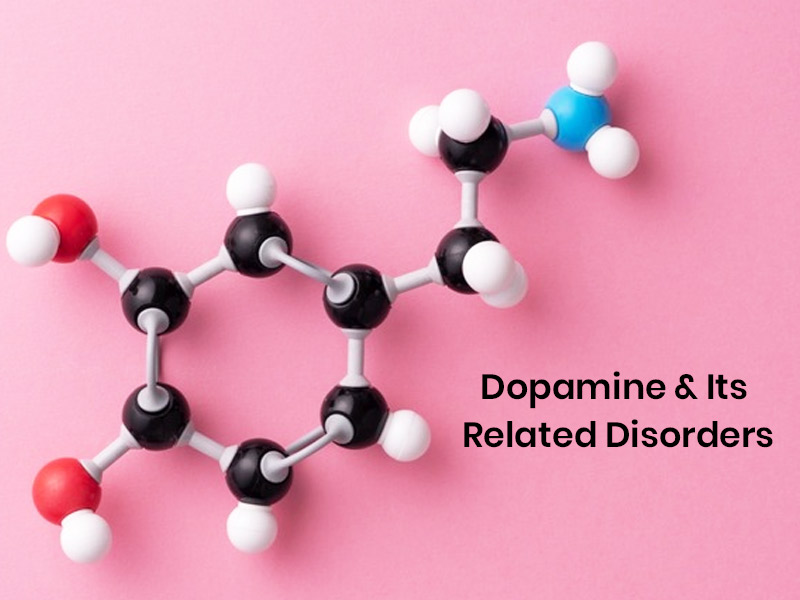
Have you ever wondered why getting all those likes on social media feels so good? Or, why do accomplishments feel so satisfying? Although we might believe, that feeling stems from the result of our hard work. However, technically, it is the work of a chemical named dopamine, which is generated in our brains. Dopamine, which is a neurotransmitter, plays a huge part in the brain’s reward system. However, it is just one of this chemical’s several functions. To know more about it, Onlymyhealth spoke to Dr. NK Venkataramana, Founder Chairman & Director Neurosciences, Brains Hospitals, Bengaluru.
Table of Content:-
According to Dr Venkataramana, dopamine is a neurotransmitter, a chemical compound synthesised in the brain. It works as a messenger to communicate between the nerves. It is generally considered as one of the emotional compounds as “it generates feelings of happiness and rewards behaviour.”
Role Of Dopamine In Your Body

(Photo Credit: Freepik)
Dr Venkataramana has enlisted the following roles that dopamine plays in the human body:
- Once dopamine is released in the body, it induces feelings of happiness, excitement, and reward. “One will feel very happy as if they have done the happiest thing in life as well as feeling of receiving the best award or recognition,” Dr Venkataramana said.
- When there is an adequate amount of dopamine in the body, it improves the mood and well-being of the individual.
- Not just the mind, dopamine has an impact on physical health as well. It plays a role in muscle movement and in the overall control of motor movements.
- Dopamine has a massive impact on our overall well-being. It can work in synchrony with other neurotransmitters or against them, thus affecting everything from our mood, mental health status, and behaviour to personality, activities, and even sleep.
But what if the dopamine level in the body gets too high or too low? If the body releases dopamine in lesser amounts, the person will have a low mood and will be depressed and inactive. In case, this neurotransmitter is in excess amount, which is rare, it can lead to the person getting too excited or hyperactive.
Dopamine-Related Disorders

Parkinson's disease is the primary major health issue related to the chemical dopamine. It happens when the dopamine level gets depleted. Explaining this further, Dr Venkataramana said that “dopamine is normally preserved in the pigmented cells of the brain called ‘substantia nigra’, the less of these cells in the brain can deplete production, storage, and secretion of dopamine leading to Parkinson's disease.” This disease is characterised by tremours (shaking of the body), tightness of the body(rigidity), slowed movement and loss of motor movements.
The reason behind the depletion of dopamine levels is currently not known. However, the genetic factor has been discovered recently (Parkin genes). There are other factors that might also play a role such as chemicals, environmental toxins and epigenetic factors, the doctor explained.
Also read: Dopamine Diet: Weight Loss Diet That Promises Happiness
Can Dopamine-Related Disorders Be Prevented?
It is possible to enhance your dopamine level physiologically. You can do that by:
- Doing something that interests you
- Achieving something, anything that triggers the reward system in your brain.
- Physical exercises such as Yoga
- Listening to enchanting music
- Physical intimacy and sex
- A good night’s sleep
- Doing activities that give personal gratification
On the other hand, there are factors that lead to a dip in the dopamine levels, such as:
- Smoking
- Alcohol use
- Environmental pollution and toxins
- Sedentary lifestyle
Also read: A Boost In Dopamine Is What You Need Right Now, Eat These Dopamine-boosting Foods
What Are The Treatment Options?
Treatment options include the replacement of dopamine. Dr Venkataramana has described the discovery of dopamine as a “great boon” in the treatment of Parkinson's disease. There are several other drugs as well that can enhance the dopamine level in the body.
So as you saw, dopamine not only plays a crucial role in our day-to-day functioning, its imbalance can lead to serious health issues, such as Parkinson’s. Not only that, it plays a role in cardiovascular health as well. In fact, it is used in critical care to maintain cardiovascular functions and circulations, Dr Venkataramana explained.
Read more articles on Mind and Body
Also watch this video
How we keep this article up to date:
We work with experts and keep a close eye on the latest in health and wellness. Whenever there is a new research or helpful information, we update our articles with accurate and useful advice.
Current Version